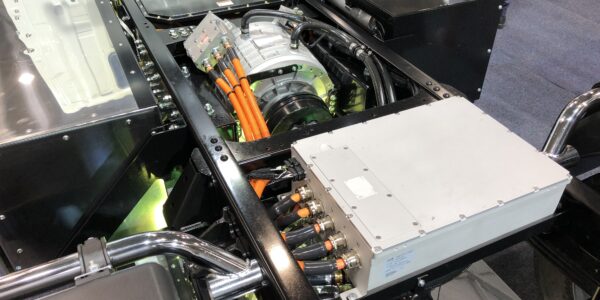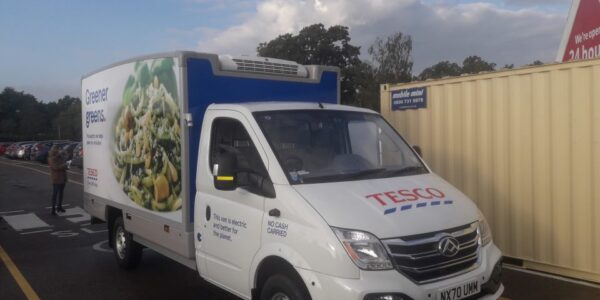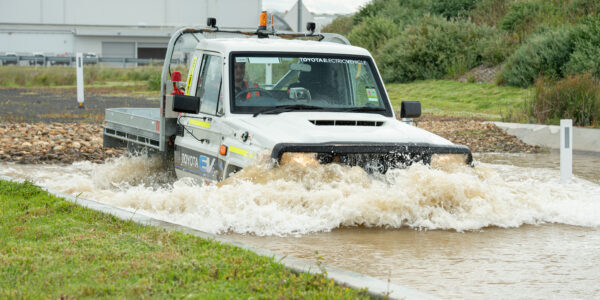Electric vans to deliver emissions reductions for Amazon
- PostedPublished 10 December 2020
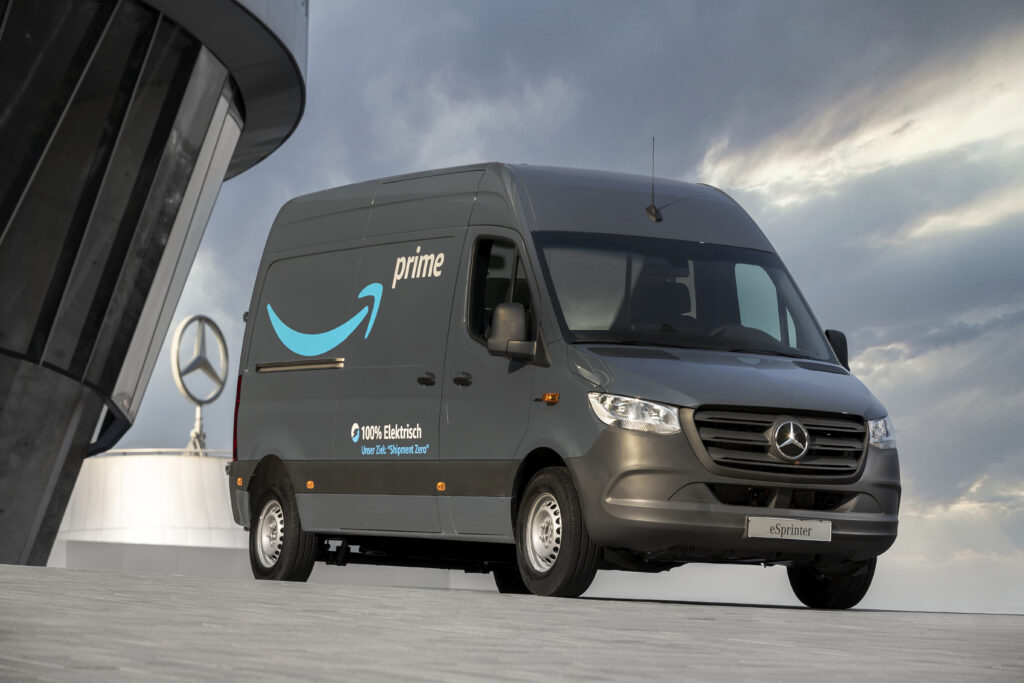
MULTINATIONAL online shopping giant Amazon has unveiled a new all-electric delivery van that will contribute to the company’s zero-carbon efforts.
The smartly styled van, designed and built in collaboration with electric vehicle specialist Rivian, will be deployed in considerable numbers. Amazon states that up to 10,000 could be on the road as early as 2022, while a total of 100,000 are due to be in service by 2030.
Few specifics have been made available but the electric van has been optimised for Amazon’s application and features a cabin designed for easy access, three-level shelving and a bulkhead door. It’s also equipped with an array of driver assistance features, including a 360-degree exterior camera system.
“When we set out to create our first customized electric delivery vehicle with Rivian, we knew that it needed to far surpass any other delivery vehicle,” said Amazon director of global fleet and products Ross Rachey.
“We wanted drivers to love using it and customers to feel excited when they saw it driving through their neighbourhood and pulling up to their home.”
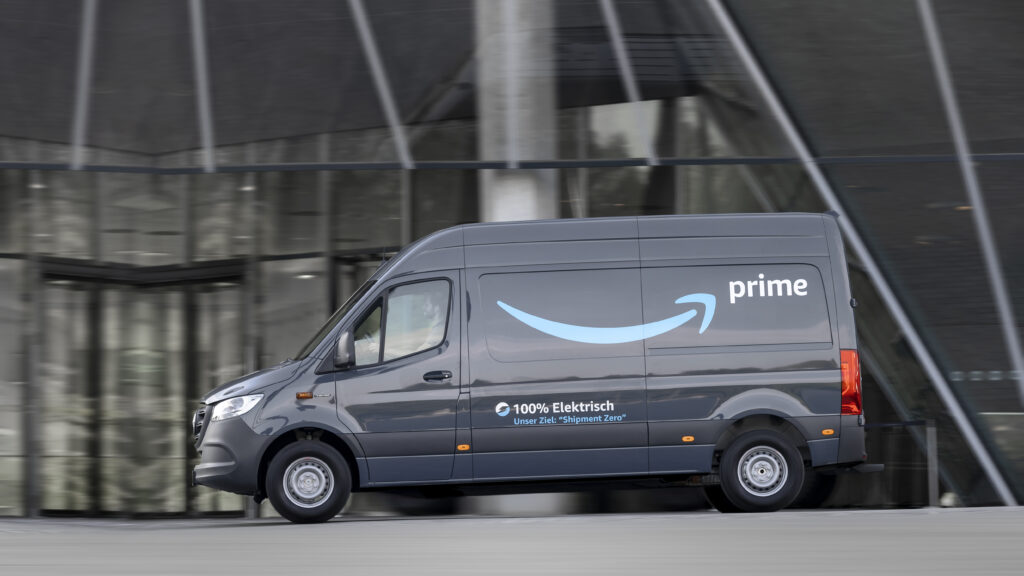
According to Amazon, the company had previously been unable to find an electric solution that met the needs of both its drivers and delivery operations. However, the company was impressed by the innovative developments and vision of Michigan-based Rivian – which had been showcasing an elegant all-electric SUV and a pick-up truck.
Subsequently, Amazon led an investment round totalling $700 million ($A952m) for Rivian. Several months later, in September 2019, Amazon solidified its commitment by placing an order for 100,000 Rivian vans. This, to date, is the world’s largest single order for electric delivery vehicles.
“We hope our custom electric vehicle helps create a sense of urgency in the industry to think big about embracing sustainable technology and solutions – whether you’re a package delivery company, a logistics company, an ice cream manufacturer, or almost anyone else with vehicles on the road,” said Rachey.
Adopting such an extensive fleet of electric delivery vehicles will play a crucial part in Amazon’s efforts to be a carbon net-zero business by 2040.
This is a key goal of a commitment, co-funded by Amazon, called “The Climate Pledge”, which aims to meet targets of the climate-change tackling Paris Agreement a decade ahead of its 2050 deadline.
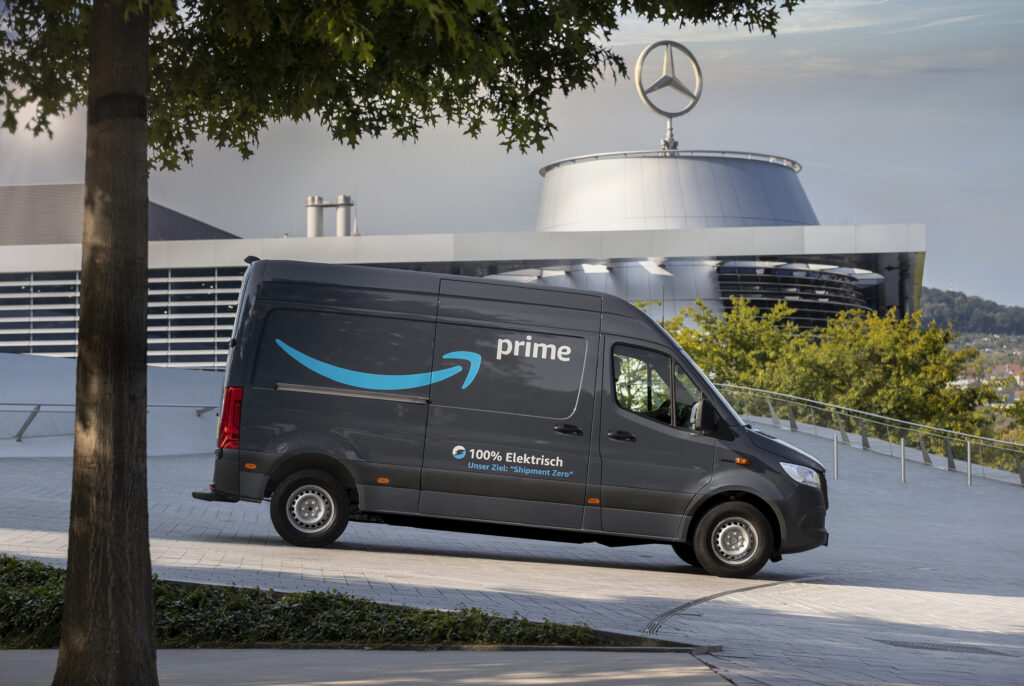
To further its efforts on the sustainability front, Amazon is aiming to use 100 per cent renewable energy in its operations by 2025. The company is also investing $136 million in carbon-removing climate and reforestation projects.
The Rivian electric van, however, is only one of the zero-emissions delivery solutions being adopted by Amazon.
It has ordered 1800 electric vehicles from Mercedes-Benz Vans, which will be used in Europe. Furthermore, to boost its own sustainability efforts, Mercedes-Benz has joined The Climate Pledge as well.
“We welcome the bold leadership demonstrated by Mercedes-Benz by signing up to The Climate Pledge and committing to ambitious action to address climate change,” said Amazon founder and CEO Jeff Bezos.
“We need continued innovation and partnership from auto manufacturers like Mercedes-Benz to decarbonise the transportation sector and tackle the climate crisis.”
Amazon is also adopting electric power for heavier-duty applications, as it currently has an order for 10 electric trucks from manufacturer Lion Electric.
The company, which is based in Canada, has over a decade’s experience in the zero-emissions truck and bus field – and has supplied more tha 300 all-electric school buses alone to operators in the US and Canada.
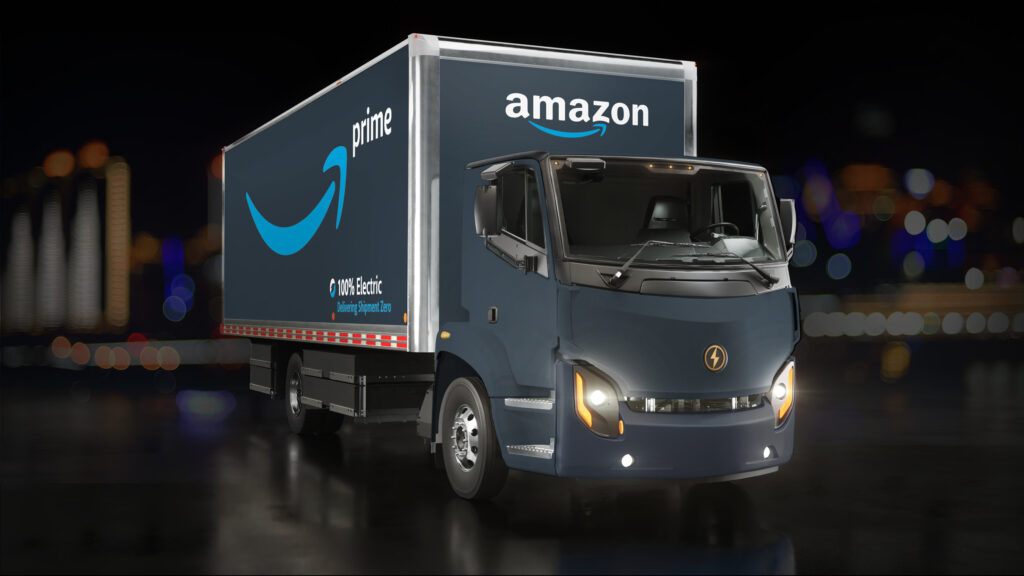
The details of Amazon’s order are yet to be announced but Lion Electric offers an array of pure electric options.
The company’s Lion6 electric truck, for example, has a gross vehicle weight (GVW) of 11,793kg, a top speed of 105km/h, a 250kW electric motor and a range of up to 290km.
The largest battery option, of 252kWh, is reputed to take from 2.5-16 hours to charge, depending on charging rate.
No payload rating is given but Lion claims 80 per cent energy costs reduction and 60 per cent maintenance costs reduction when compared to a standard diesel truck.
Marc Bedard, CEO and founder of Lion Electric, said: “Amazon is a leader in adopting decarbonising technologies that can improve sustainability among their trucking fleet. Our all-electric trucks will be a valuable addition to Amazon’s trucking operations as they work to deliver on their sustainability goals.”
- CategoriesIn SightGlass
- TagsAmazon, electric van, electric vehicles, SightGlass News Issue 22

